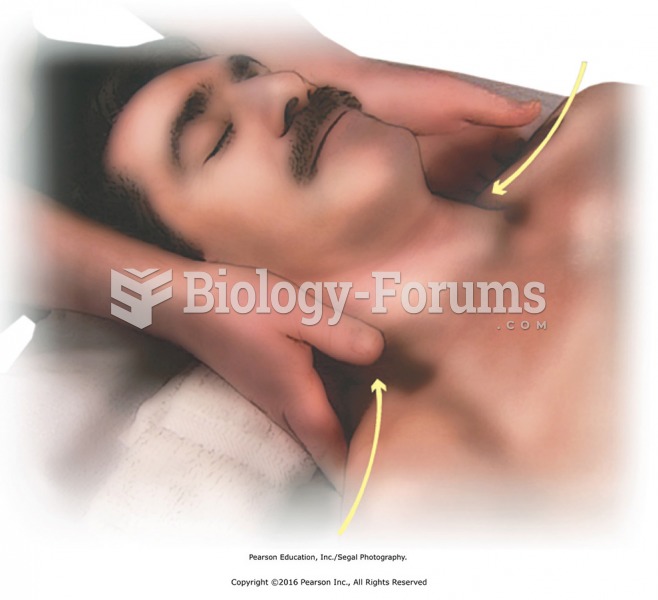|
|
|
For high blood pressure (hypertension), a new class of drug, called a vasopeptidase blocker (inhibitor), has been developed. It decreases blood pressure by simultaneously dilating the peripheral arteries and increasing the body's loss of salt.
In ancient Rome, many of the richer people in the population had lead-induced gout. The reason for this is unclear. Lead poisoning has also been linked to madness.
Symptoms of kidney problems include a loss of appetite, back pain (which may be sudden and intense), chills, abdominal pain, fluid retention, nausea, the urge to urinate, vomiting, and fever.
Prostaglandins were first isolated from human semen in Sweden in the 1930s. They were so named because the researcher thought that they came from the prostate gland. In fact, prostaglandins exist and are synthesized in almost every cell of the body.
The most destructive flu epidemic of all times in recorded history occurred in 1918, with approximately 20 million deaths worldwide.
 Tense laid back ear position indicating unhappiness. Mouth and lips are also tense, which may indica
Tense laid back ear position indicating unhappiness. Mouth and lips are also tense, which may indica
 Frederick Douglass, having escaped from slavery in 1836, attracted large audiences as an antislavery
Frederick Douglass, having escaped from slavery in 1836, attracted large audiences as an antislavery
 Effleurage with fingertips to tops of both shoulders and neck. Feel for which side is most tense and ...
Effleurage with fingertips to tops of both shoulders and neck. Feel for which side is most tense and ...




